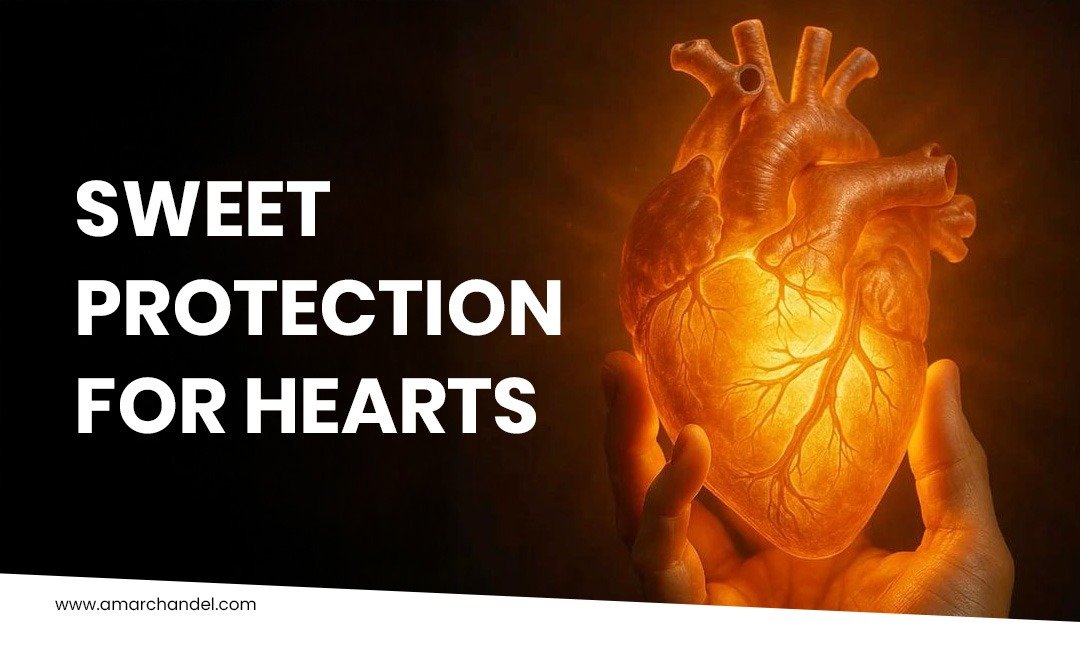Cardiovascular diseases (CVDs) remain the leading cause of mortality, responsible for over 28% of all deaths according to the Indian Council of Medical Research (ICMR), 2020. With lifestyle-related risk factors like high cholesterol, poor diet, and sedentary habits on the rise, it is imperative to look not just at medications but also at everyday foods that can naturally and effectively protect our arteries.
One often-overlooked but powerful contributor to heart disease and stroke is platelet aggregation—a process where blood cells clump together to form clots. While necessary to stop bleeding, excessive platelet activation can lead to blockages in the arteries, causing heart attacks and strokes. But recent studies reveal that nature provides potent, side-effect-free solutions—berries.
Platelets are small, disc-shaped cells in our blood that help form clots. In a healthy body, platelets stay dormant. However, when activated, they release inflammatory chemicals and agents that promote clot formation. These not only trigger sudden blockages but also promote chronic arterial inflammation, accelerating atherosclerosis—the hardening and narrowing of arteries.
According to the European Society of Cardiology (ESC, 2023), platelets are now seen not only as culprits in the final heart attack event, but also as initiators and promoters of arterial disease. Therefore, inhibiting unnecessary platelet activation becomes a key strategy in preventing cardiovascular disease.
This is where berries—especially strawberries, blueberries, and Indian native fruits like jamun (black plum) and phalsa—come into the picture.
A landmark study published in the journal Food & Function (British Royal Society of Chemistry, 2016) demonstrated that daily consumption of strawberries reduces platelet activation in humans. Participants ate a bowl of fresh strawberries daily for four weeks. Blood samples showed a significant decrease in activated platelets, suggesting that strawberries help prevent dangerous clots from forming.
Similarly, a 2022 study in the Journal of Nutritional Biochemistry found that polyphenols in berries inhibit key enzymes and reduce platelet aggregation to a degree comparable to low-dose aspirin—but without the side effects like gastric ulcers or bleeding.
More importantly, grape juice—especially purple, seeded Indian grapes—was shown to reduce platelet stickiness and improve endothelial function in a way similar to, or even better than, synthetic blood thinners (American Journal of Clinical Nutrition, 2021).
India has a rich variety of antioxidant-rich fruits that remain underappreciated. Jamun (Syzygium cumini), a native Indian berry with deep purple skin, is rich in anthocyanins—natural compounds with strong antiplatelet and anti-inflammatory properties. According to a 2021 research article from Banaras Hindu University, jamun extract was shown to inhibit platelet aggregation and improve blood flow in lab models.
Similarly, phalsa (Grewia asiatica), often consumed in summer, is high in flavonoids and resveratrol-like compounds. A 2023 study published in the Indian Journal of Experimental Biology revealed that phalsa juice significantly reduces clotting tendency and oxidative stress in animal models with hyperlipidemia.
These fruits are not only affordable and locally available but also culturally acceptable. They can easily be incorporated into Indian diets as fresh snacks, chutneys, juices, or even in traditional preparations like “jamun ka sherbet”.
What About Aspirin?
While daily aspirin therapy was once recommended for heart disease prevention, new evidence suggests caution. According to updated guidelines from the American College of Cardiology (2022) and the Indian Heart Journal, aspirin should not be routinely used for primary prevention (i.e., in people who’ve never had a heart attack or stroke) due to the risk of internal bleeding.
Thus, natural platelet inhibitors like berries offer a safer option—especially for Indians with borderline risk factors, poor access to regular healthcare, or those preferring natural remedies.
Practical Tips
1. Eat a bowl of seasonal berries daily during their availability (strawberries in winter, jamun in monsoon, phalsa in summer).
2. Drink purple grape juice (with no added sugar or preservatives).
3. Avoid fruit juices like orange or sweet lime if targeting platelet activity—they don’t show the same benefits as berries.
4. Pair berries with high-fibre foods to amplify their heart-healthy effects.

The Underlying Mechanism
Berries are rich in polyphenols, flavonoids, anthocyanins, and resveratrol—compounds that inhibit platelet activation by modulating COX enzymes, nitric oxide pathways, and P-selectin expression, all of which play roles in clot formation and inflammation. These compounds also reduce oxidative stress, which further protects arterial health.
A study from All India Institute of Medical Sciences (AIIMS), Delhi (2023) observed that Indian adults with higher antioxidant intake from berries and greens had significantly lower markers of platelet activation and C-reactive protein, a key indicator of systemic inflammation.
Conclusion
In a country like India, where CVDs are rising even in the younger population, preventive strategies rooted in diet and lifestyle are more essential than ever. The humble berry—whether the imported strawberry or the native jamun—is no longer just a sweet indulgence but a potent protector of our arteries.
Rather than reaching for a pill, reach for a handful of berries. Nature’s pharmacy may be growing in your backyard or at your local sabzi mandi.
References
1. ICMR & PHFI. India: Health of the Nation’s States. 2020.
2. European Society of Cardiology. ESC Guidelines on CVD prevention. 2023.
3. Aiello, R. J. et al. Journal of Nutritional Biochemistry. 2022.
4. McDougall G. J. et al. Food & Function, Royal Society of Chemistry. 2016.
5. Bhardwaj A. et al., Banaras Hindu University. Phytotherapy Research, 2021.
6. Singh R. et al. Indian Journal of Experimental Biology, CSIR-NIScPR, 2023.
7. GBD 2019 Collaborators. The Lancet, 2020.
8. AIIMS Delhi. Journal of Diet and Prevention, 2023.
9. American College of Cardiology. 2022 Update on Aspirin in Primary Prevention.


Give a Reply